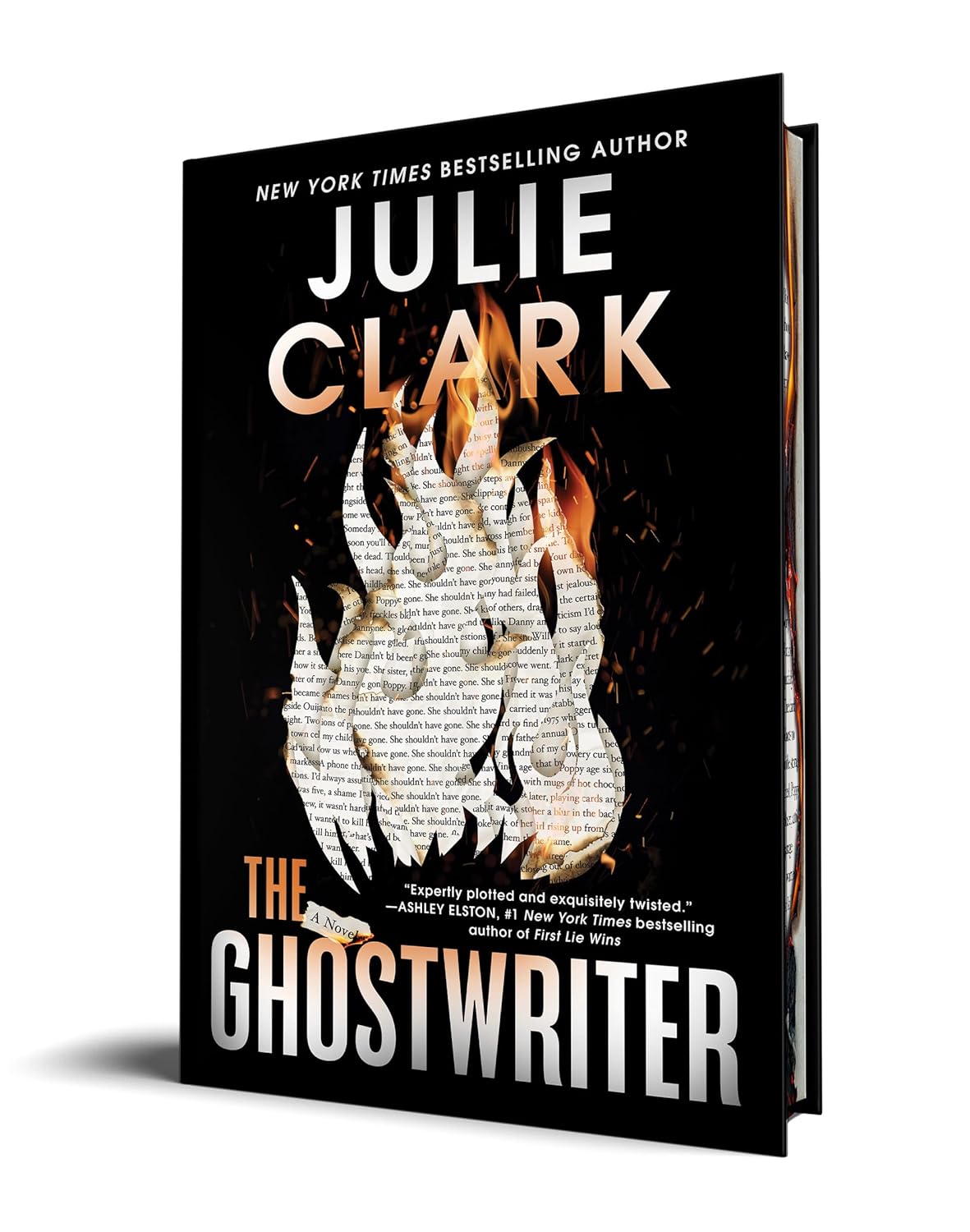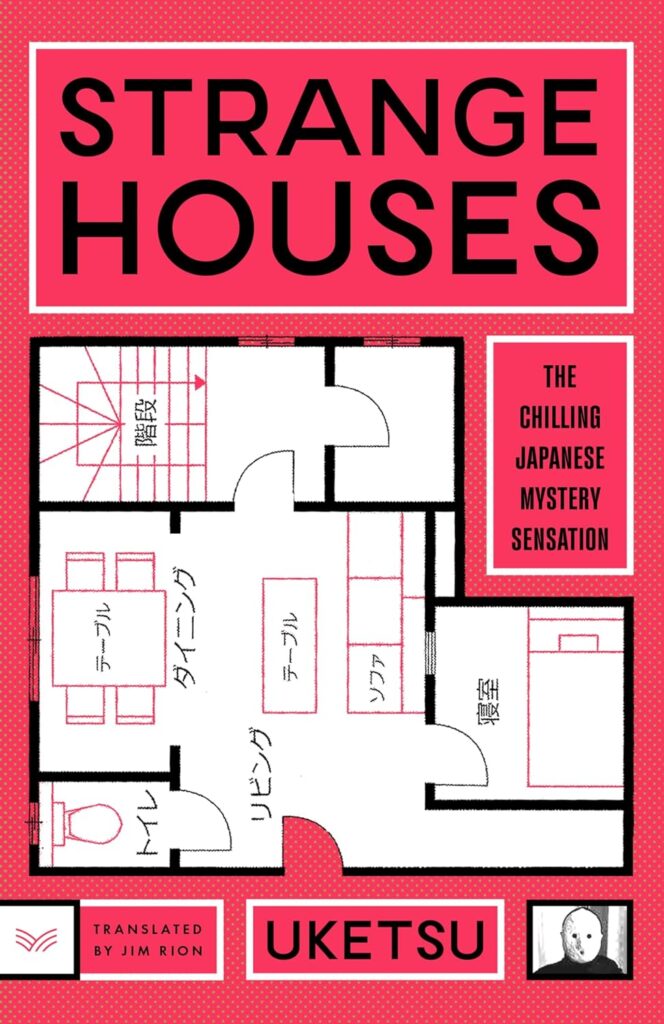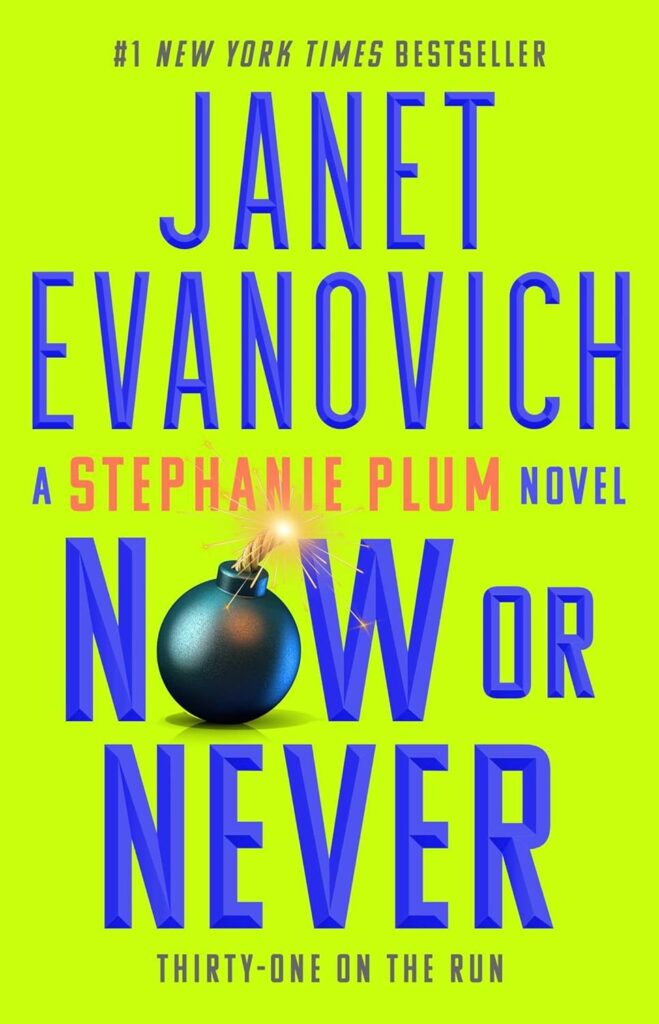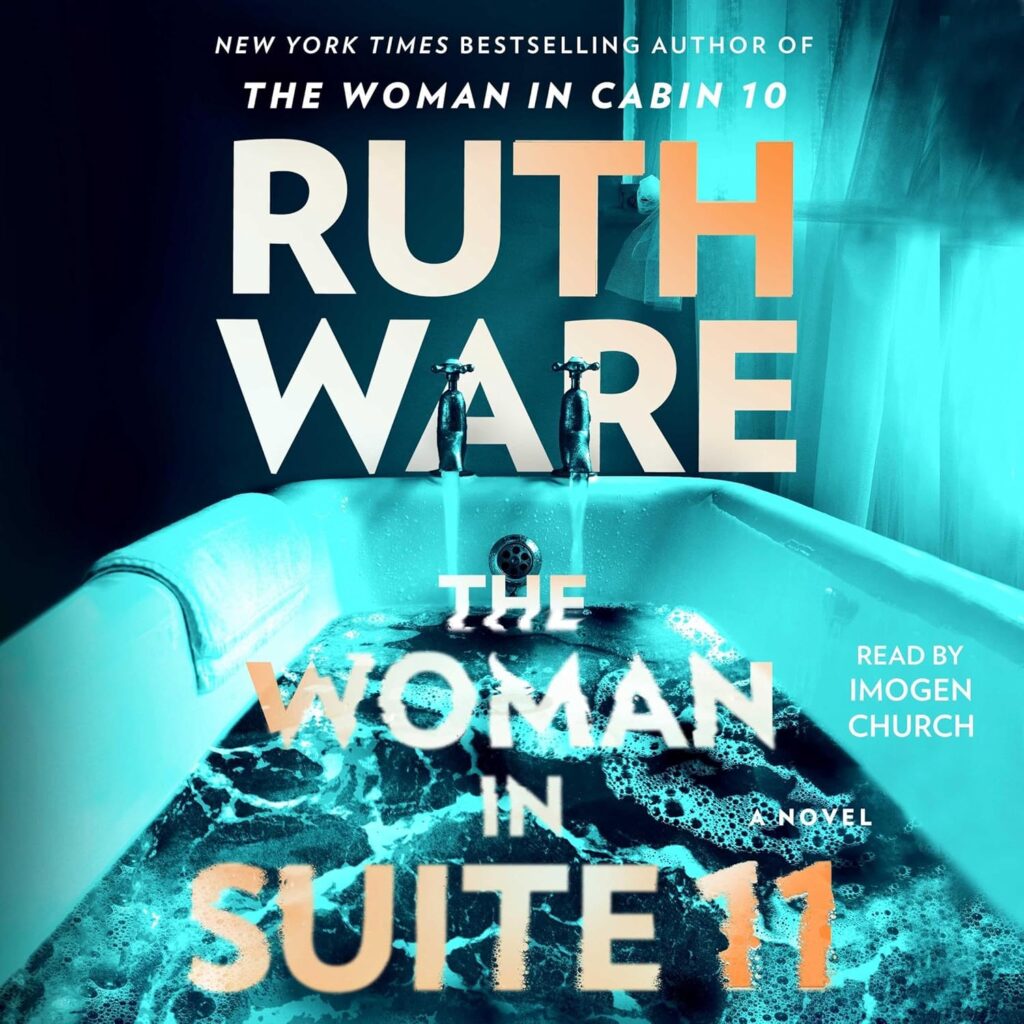There are stories we tell, and then there are the stories that tell us. Julie Clark, the acclaimed author who captivated millions with The Last Flight and The Lies I Tell, returns with her latest, most intricate thriller yet: The Ghostwriter. For those of you eagerly searching for “The Ghostwriter book review,” prepare to be drawn into a labyrinth of family secrets, cold cases, and the chilling realization that the truth can be far more terrifying than fiction. Clark has once again proven her mastery of suspense, delivering a novel that is not just a page-turner but a profound exploration of identity, legacy, and the narratives we construct to survive.
From the very first page, The Ghostwriter grips you with a premise that is both ingenious and deeply unsettling. It’s a story where the lines between author and subject, past and present, and truth and fabrication blur into a mesmerizing dance of revelation. If you’ve ever wondered about the untold stories lurking within seemingly ordinary families, or the lengths people go to protect their darkest secrets, then this is the book you’ve been waiting for.
Unraveling the Mystery: A Deep Dive into The Ghostwriter Book Review
At the heart of The Ghostwriter is Olivia Dumont, a professional ghostwriter whose career has taken a severe hit after a public scandal. Desperate for a lifeline, she reluctantly accepts an assignment that will force her to confront the deepest, most painful secret of her own past: ghostwriting the memoir of her estranged father, Vincent Taylor. Vincent isn’t just any horror novelist; he’s a living legend, renowned not only for his chilling tales but also for the cloud of suspicion that has followed him for fifty years. In June 1975, his two teenage siblings, Danny and Poppy, were brutally murdered in their family home, and Vincent, the sole survivor, has lived under the shadow of accusation ever since. The case remains unsolved, a cold, festering wound in the heart of the Taylor family.
The true genius of Clark’s premise unfolds as Olivia discovers that this isn’t just another celebrity memoir. Vincent isn’t interested in writing a horror novel; he wants to finally tell the story of what really happened that fateful night in 1975. This shocking revelation sets Olivia on a perilous journey, forcing her to become both an investigative journalist and a reluctant family historian. As she delves into Vincent’s fragmented memories, old police reports, and unearthed family artifacts, she begins to piece together a narrative that is far more complex and dangerous than she could have ever imagined. The novel deftly navigates two timelines—the present, as Olivia meticulously uncovers clues, and 1975, reliving the events leading up to and immediately following the murders—creating a palpable sense of dread and urgency. This dual narrative structure is one of the novel’s greatest strengths, allowing Clark to build suspense incrementally, revealing tantalizing fragments of information that keep the reader perpetually guessing. For any devotee of “The Ghostwriter book review” that promises intricate plotting, this novel delivers tenfold.
Characters: Shadows and Secrets that Define a Family
Clark’s characters in The Ghostwriter are not mere archetypes but complex, flawed individuals whose motivations and secrets drive the compelling narrative.
Olivia Dumont: The Ghostwriter at the Heart of the Mystery
Olivia is a protagonist brimming with internal conflict. Her professional life as a ghostwriter has always been about channeling other people’s voices, helping them craft their stories while keeping her own identity hidden. This profession takes on a darkly ironic twist when she is forced to write her father’s story – a story that implicates her own family. She carries the heavy burden of her father’s notoriety, the whispers and judgment that have followed her throughout her life. Her initial reluctance to take the job is perfectly understandable; who wants to shine a light on the darkest corners of their own family tree? Yet, her desperate financial situation forces her hand, pushing her into an uncomfortable proximity with the man who shaped her very existence, for better or worse. As Olivia pieces together the past, she’s not just seeking answers for a book; she’s desperately seeking to understand her own origin story, to reconcile with the legacy of violence and suspicion that has haunted her. Her journey is one of immense personal growth, forcing her to shed her protective layers and confront uncomfortable truths, not only about her father but about herself. Her resilience and vulnerability make her a truly compelling guide through this intricate mystery.
Vincent Taylor: The Enigmatic Patriarch
Vincent Taylor is the enigmatic heart of the novel’s mystery. A celebrated horror writer, his fame is inextricably linked to the unsolved murders of his siblings. He has lived with the whispers of guilt for decades, becoming a recluse and a figure of dark fascination. His decision to finally “talk” creates a palpable tension. Is this a genuine desire for confession, a plea for absolution, or another one of his elaborate lies? Clark masterfully crafts Vincent as an unreliable narrator, forcing the reader, much like Olivia, to question every word, every memory, every subtle shift in his demeanor. His declining cognitive abilities add another layer of complexity, making it even harder to discern truth from the fog of age and trauma. Vincent is a character riddled with contradictions: a loving father who inflicted deep wounds, a seemingly innocent man shadowed by heinous crime, and a storyteller whose greatest tale might just be his own life. His motives remain opaque for much of the novel, fueling the suspense and driving Olivia’s relentless pursuit of the past. The dynamic between Olivia and Vincent is a tour de force, embodying the strained, yet unbreakable, bonds of family, even when shattered by tragedy. Any “The Ghostwriter book review” worth its salt must highlight this captivating, complex relationship.
Danny and Poppy Taylor: The Victims and Their Stories
Though their lives were tragically cut short, Danny and Poppy Taylor are far from passive victims. Through the dual timeline and Olivia’s investigation, their personalities and roles in the family dynamic are vividly brought to life. Danny, often portrayed as the golden child, represented a certain ideal, while Poppy emerges as a vibrant, insightful, and aspiring filmmaker whose unearthed journal entries and Super 8 footage become crucial pieces of the puzzle. These glimpses into their lives provide not just clues, but also a poignant sense of loss and the lingering unfairness of their premature deaths. Their presence, though ghostly, casts a long shadow over the present-day narrative, pushing Olivia to seek justice for the siblings she never truly knew.
Themes: Layers of Deception and the Quest for Truth
Beyond its thrilling plot, The Ghostwriter delves into a rich tapestry of themes that resonate long after the final page is turned.
The Nature of Truth and Narrative
Perhaps the most prominent theme is the fluid, often elusive, nature of truth and the power of narrative. Olivia’s profession as a ghostwriter, crafting stories for others, becomes a meta-commentary on the entire novel. Whose truth is being told? How much is embellished, omitted, or outright fabricated? Vincent’s memoir, ostensibly a quest for truth, is also a highly subjective and potentially manipulative account. The novel constantly questions whether absolute truth can ever truly be captured, especially when filtered through memory, trauma, and personal bias. This intellectual layer elevates The Ghostwriter beyond a simple mystery.
Family Secrets and Generational Trauma
The novel is a poignant exploration of how deep-seated family secrets can echo through generations, poisoning relationships and shaping identities. The 1975 murders are not just an event; they are a trauma that defined Vincent’s life and subsequently, Olivia’s. Clark powerfully illustrates the toll that shame, suspicion, and unspoken truths take on individuals and families. Olivia’s journey is as much about healing these generational wounds as it is about solving a cold case.
Identity and Legacy
Olivia grapples with the inescapable legacy of being “the daughter of Vincent Taylor,” a man forever linked to a horrific crime. How does one forge an identity when their very existence is tied to such a dark past? Similarly, Vincent’s legacy as a horror writer is intertwined with the real-life horror he supposedly perpetrated. The novel examines how individuals contend with public perception versus private reality, and the struggle to define oneself apart from the stories others tell about you.
Unreliable Memory and Perception
With Vincent’s declining health and the passage of fifty years, the reliability of memory becomes a central tension. How much can be trusted? How do different perspectives of the same event diverge? Clark brilliantly employs multiple viewpoints and fragmented sources (journals, film footage) to highlight the inherent subjectivity of perception, keeping the reader on edge and questioning every piece of information.
Crafting Suspense: The Literary Style of The Ghostwriter
Julie Clark’s prose in The Ghostwriter is, as one reviewer noted, “deftly and engagingly” crafted, pulling you into the narrative with an almost irresistible force. Her writing is precise, atmospheric, and economical, yet rich in psychological detail. She builds suspense not with cheap jump scares, but with a creeping sense of unease, a slow burn that gradually ignites into “gasp-inducing twists.”
The dual timeline structure is executed with remarkable finesse. The transitions between 1975 and the present day are seamless, enriching the narrative rather than fragmenting it. This allows for a gradual revelation of information, ensuring that each new piece of the puzzle lands with maximum impact. By presenting the past through varying lenses—Vincent’s memories, Poppy’s journal entries, and the raw footage from her Super 8 camera—Clark creates a multi-layered perspective that constantly challenges the reader’s assumptions. The “book within a book” device, where Olivia is literally ghostwriting Vincent’s story, adds a clever metatextual layer, inviting readers to consider the act of storytelling itself and the power it holds. For a comprehensive “The Ghostwriter book review,” appreciating Clark’s stylistic choices is paramount. Her ability to maintain a tight, propulsive pace while delivering deep character work is truly commendable.
The Verdict: Strengths and Weaknesses in The Ghostwriter Book Review
No book is without its nuances, and a truly honest “The Ghostwriter book review” must consider both its triumphs and any minor stumbles.
Strengths: A Symphony of Suspense
- Ingenious and Original Premise: The concept of a ghostwriter uncovering her own father’s alleged crimes is brilliant, providing endless avenues for psychological depth and thrilling revelations.
- Masterful Plotting and Pacing: Clark weaves together two complex timelines with exceptional skill, layering clues and red herrings to maintain relentless suspense. The pacing, while a slow burn initially, accelerates dramatically, leading to truly “gasp-inducing twists.”
- Complex Character Dynamics: The strained, yet compelling, father-daughter relationship between Olivia and Vincent is the emotional anchor of the novel. Their individual struggles and their complicated bond provide immense depth.
- Rich Thematic Exploration: The book delves into profound themes of truth, memory, family trauma, and identity, elevating it beyond a simple genre thriller.
- Atmospheric and Engaging Prose: Clark’s writing creates a “creeping mood of unease” and keeps readers completely immersed in the narrative.
- Satisfying and Shocking Ending: Reviews consistently praise the unexpected twists and the ultimately gratifying resolution, even if some found themselves re-reading the very end to piece it all together.
Potential Weaknesses: Nuances to Consider
- Initial Pacing: Some early reader impressions suggest the first half might feel like a “slow build” as the intricate setup is established. However, this is a minor point, as most agree the second half “really gets good.” Patience is rewarded as the foundation for the thrilling climax is meticulously laid.
- Complexity: The dual timelines and multiple perspectives, while a strength, could potentially be challenging for readers who prefer more straightforward narratives. However, for those who appreciate a rich, layered mystery, this is precisely what makes the book so rewarding.
- Character Sympathy: One reviewer mentioned not “really loving Olivia the main character.” While subjective, some readers might find her initial reluctance or internal struggles frustrating before her arc fully develops. However, her realism and vulnerability are also what make her relatable.
Reader Impressions and Critical Acclaim
Even before its official release, The Ghostwriter has garnered significant buzz and critical acclaim, quickly becoming an instant New York Times bestseller. The consensus is clear: Julie Clark has delivered another winner that stands shoulder to shoulder with her previous successes.
Publishers Weekly lauded the novel, stating, “Clark (The Lies I Tell) effortlessly delivers on her clever, metatextual premise in this devilish thriller. . . It adds up to a deeply satisfying shocker.” Other critical voices echo this sentiment, describing it as “expertly plotted and exquisitely twisted” (Ashley Elston), a “pulse-pounding thriller as well as a heart-wrenching family suspense” (May Cobb), and “a masterclass in plotting” (Ashley Winstead).
Goodreads showcases a strong reader response, with an average rating of 4.14 stars from thousands of ratings and reviews. Impressions range from “Secrets and Lies” to “Wowza!” and “Well written.” Readers consistently highlight the book’s twisty nature and emotional depth. One reviewer noted, “This brilliantly twisty mystery, intertwined with a deeply sentimental and dysfunctional family drama, is the kind of book that lingers in your mind long after you finish it.” Another praised its immersive quality: “I was completely gripped by Julie Clark’s phenomenal latest, The Ghostwriter, which is both a pulse-pounding thriller as well as a heart-wrenching family suspense with an explosive, decades old mystery at its center.” The sentiment is overwhelmingly positive, cementing The Ghostwriter‘s place as a must-read for fans of psychological suspense.
Personal Analysis, Insights, and Reflections
Stepping into the world of The Ghostwriter felt like inheriting a dark, unspoken family history. What truly captivated me about this novel wasn’t just the unraveling of a decades-old murder mystery, but the profound psychological journey of Olivia. As a ghostwriter, her professional detachment is challenged by the intensely personal nature of this assignment. It forces her to confront not just what her father might have done, but who she is in the shadow of his infamy.
Clark’’s decision to blend the traditional thriller with a rich family drama is what makes this book so compelling. The tension isn’t solely derived from the “whodunit” aspect, but from the delicate dance between father and daughter, each trying to understand and perhaps forgive the other, while simultaneously guarding their own truths. The chilling realism of a cold case, particularly one involving such intimate family betrayal, resonated deeply. It reminded me that the most terrifying monsters often hide in plain sight, behind the facades of normalcy and family bonds.
The use of Poppy’s journal and Super 8 footage was a stroke of genius. These elements didn’t just serve as plot devices; they were windows into the victims’ lives, making their tragedy all the more poignant and personal. It added a layer of authenticity and vulnerability that is rare in the thriller genre. The constant questioning of Vincent’s reliability, amplified by his declining health, keeps the reader perpetually off-balance, never truly knowing who to trust. This narrative ambiguity is a hallmark of truly sophisticated suspense. If you are reading this “The Ghostwriter book review” to decide if it’s for you, know that it’s a book that demands your attention and rewards it handsomely.
The Ghostwriter is more than a thrilling ride; it’s a meditation on how our past shapes our present, how stories are constructed and deconstructed, and the enduring power of truth, no matter how painful it may be. It prompts reflection on the secrets we keep, the lies we tell, and the courage it takes to unearth the uncomfortable realities that define us. This is a book that will stay with you, prompting conversations about justice, memory, and the intricate tapestry of family.
Don’t Miss Julie Clark’s Latest Thriller
In conclusion, Julie Clark’s The Ghostwriter is an expertly crafted, psychologically rich, and utterly absorbing thriller that solidifies her reputation as a master of the genre. It offers everything a devoted reader of suspense could wish for: an original, high-stakes premise, complex and compelling characters, a masterful dual timeline narrative, and twists that will leave you breathless. This isn’t just another addition to your reading list; it’s an essential experience for anyone who revels in stories of hidden identities, family betrayals, and the relentless pursuit of truth.
If you’re seeking a novel that will seize your attention from the first page and refuse to let go, one that delivers on its promises of intricate plotting and shocking revelations, then look no further than The Ghostwriter. Don’t just read about it; experience the chilling unraveling of truth for yourself. Grab your copy today and join the legions of readers already captivated by Julie Clark’s latest masterpiece! This “The Ghostwriter book review” is just a glimpse into the thrilling depths awaiting you.
“Enjoyed this review? Discover more in our Crime Reviews section.”





